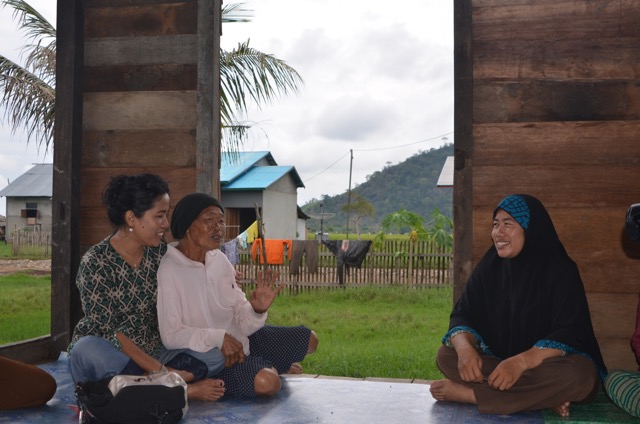Women Are Leading the Way Towards a Healthy Planet
Mar 8th, 2019 | By admin | Category: Reproductive Rights/Women's RightsBy Suzanne York.
It is critical to support human rights in the face of climate change and environmental degradation, as the situation grows more dire with each passing year. People everywhere must have their rights to water, food, and health acknowledged and respected, women above all.
As the world recognizes International Women’s Day, let’s explore two organizations founded and run by women who are making a huge difference in the communities in which they work by linking conservation with health and rights.Connecting Human Rights, Health, and Conservation
In Uganda, the country’s first wildlife veterinarian – Dr. Gladys Kalema-Zikusoka – founded the organization Conservation Through Public Health (CTPH).While working in Bwindi Impenetrable National Park in southwestern Uganda, Dr. Gladys saw first-hand how the transmission of diseases between humans and wildlife threatened the success of conservation programs. She also knew that the local communities were very poor and lacking basic health and sanitation services. Furthermore, there were problems with human-wildlife conflict, and lack of opportunities for the community to benefit from the park.
Dr. Gladys and CTPH begin implementing an integrated development model known as population, health and environment (PHE) to help empower local communities and protect the flora and fauna of Bwindi Impenetrable National Park, especially the mountain gorillas. Of the world’s 880 remaining gorillas, approximately 400 are found in Bwindi Impenetrable National Park.
Uganda is a country experiencing a high rate of population growth and grave threats to its biodiversity. CTPH has been successful with conservation efforts, and they are also helping local Ugandans meet their basic needs such as health care and alternative livelihoods, such as through supporting a sustainable coffee cooperative and empowering community members through information technology projects.
The integrated approach is reaping big benefits for the communities elsewhere in Uganda, as well as in neighboring countries, such as Tanzania and Kenya.
Dr. Gladys believes “Linking conservation and human public health is a viable approach to sustainable development that can directly reduce disease threats to the great apes, and lead to greater support for conservation through addressing a basic need among marginalized communities bordering protected areas.”
“Saving the Rainforest with a Stethoscope”
In southeast Asia, in a remote pocket of Indonesian Borneo, a small organization is working with local communities to improve human health and protect a fragile environment.
Alam Sehat Lestari, which translates to “health and nature everlasting” and goes by the initials ASRI, works in the town of Sukadana and surrounding communities, which borders Gunung Palung National Park, home to an estimated 2,500 orangutans. Though community members by and large want to protect the forest and understand its value, poverty has driven many to take up illegal logging in order to meet basic needs. In 2015, rapid clearing of forests in Borneo for wood and palm oil plantations contributed to horrific fires that threatened nature and human health.
ASRI (and its partner organization Health in Harmony) is creating change for good through a process its organizational founders refer to as “radical listening.” Perhaps what is most radical about this approach is that the voices of the community have been listened to loud and clear.
ASRI’s founders – Dr. Kinari Webb, Dr. Hotlin Ompusunggu, and Dr. Antonia Gorog – spent hundreds of hours in talks with community members to understand their needs. Though many people valued the park, the only way to meet their basic needs was to log the forest. Poverty was – and still is – the driving force, even though the community knew that the Gunung Palung forest is their watershed and is needed to grow rice and other crops, and without it they would face more floods and disease. For most of the local people, they have an income of less than $1 a day, and illegal logging is their best option.

ASRI co-founder Dr. Hotlin Ompusunggu (left) with local widows with whom they work. [Photo: Suzanne York]
By implementing their radical listening approach, ASRI’s women leaders heard the community ask for health care, ambulances, mobile health clinics, and organic farming. ASRI also saw that using an integrated health and environment development model was needed. According to Dr. Ompusunggu, the clinic was created to address short-term needs for long-term well-being for the people and also for nature.
The ASRI leaders call it “saving the rainforest with a stethoscope.” ASRI came up with a plan to offer a variety of payment options for healthcare services. This includes cash of course, but also paying with seedlings (to support reforestation), handicrafts, labor, and even organic manure. This flexible payment plan offers options people didn’t have before and is getting healthcare to those who need it most.
The clinic provides both medical and dental health services, which includes eye care, immunization, and birth control. In the crowded waiting area, ASRI staff give weekly health and environmental conservation presentations as people wait for their appointment.
These are just two examples of the many organizations run by women that are supporting women and communities around the world. How many more are out there waiting to be heard about their work protecting women, their families and communities, and the planet?
Suzanne York is Director of Transition Earth. She has visited both the CTPH and ASRI projects.

![[Photo: https://www.internationalwomensday.com]](http://populationgrowth.org/wp-content/uploads/2019/03/InternationalWomensDay2019-BalanceforBetter-theme.jpg)
![Feredasi Nganwa (second from left), VHCT volunteer, along with members of her community, and Dr. Gladys Kalema-Zikusoka (right) [Photo: Suzanne York]](http://populationgrowth.org/wp-content/uploads/2019/03/Fed.jpg)